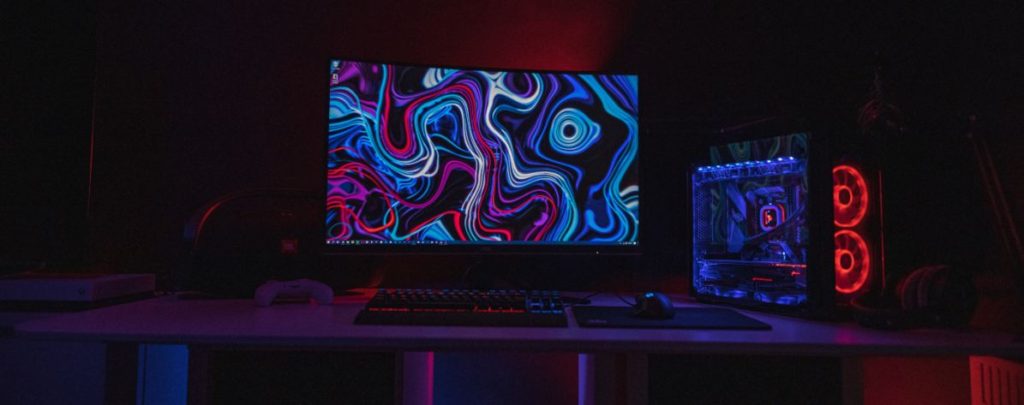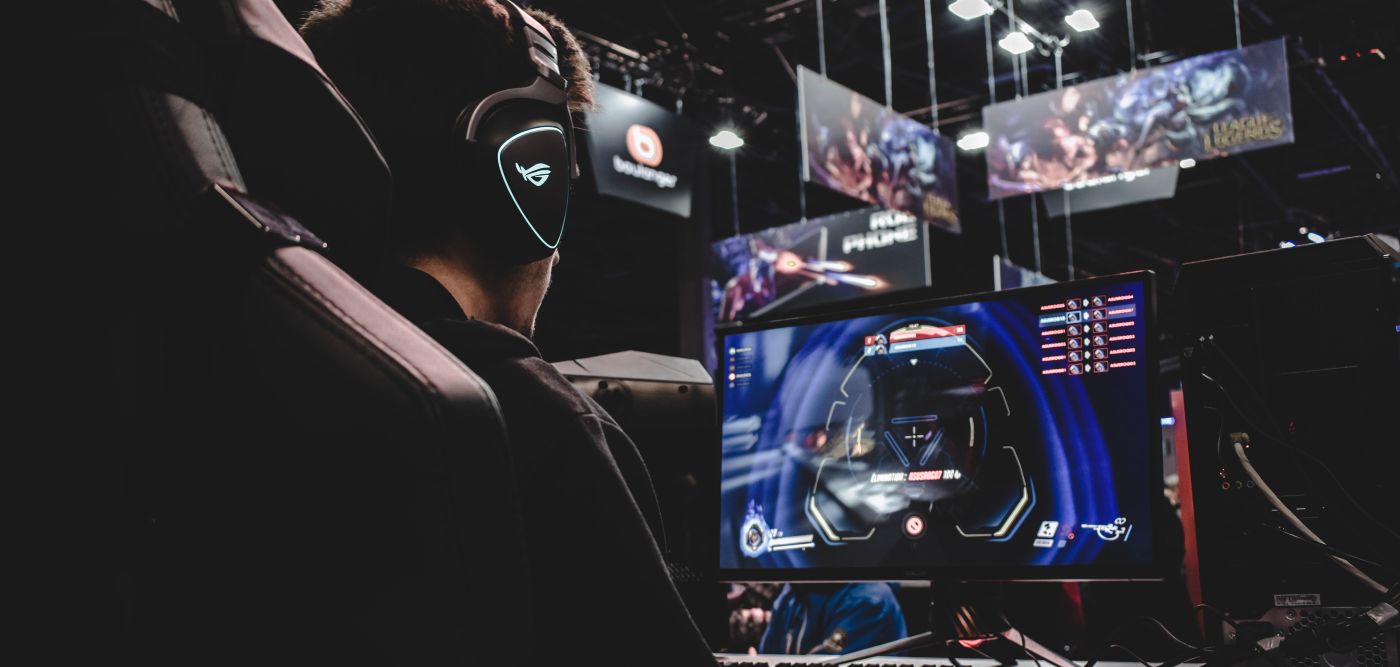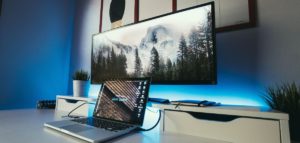Gaming PCs accomplish quite a bit, but they don’t stand on their own. While a gaming laptop offers an all-in-one approach to gaming, you need to search for different peripherals to complete your setup. If you find yourself asking “Do you need a monitor for a gaming PC?”, this article is for you.
You need a monitor for a gaming PC. This equipment allows you to see all the processes of your gaming PC, and without one you cannot interact with the visualization of these processes. Most gaming PCs use graphics cards that demand more from a monitor, and you need to consider this when choosing the right monitor.
In this article, we explore the exact reasons you need a monitor for your gaming PC and the difference between regular monitors and those marketed for gaming. We also look at what you need to consider when shopping for a monitor to match the power of your PC.
Do You Need A Good Monitor Even If You Have A Great PC?
The monitor you choose for your gaming PC impacts:
- Latency
- Color accuracy
- Image quality
Taking the time to make sure the monitor matches your computer’s standards lets you get the most out of your specs, and it provides the most immersive experience possible.
Your setup is only as good as its weakest component.
Let’s say your PC can run a game at 144 frames per second but you only have a 60Hz monitor. In this case, the monitor is refreshing the image 60 times a second, while the actual game image is refreshing 144 times per second. Meaning, that the monitor can’t display every frame and consequently, your monitor is restricting performance. Or in other words, your PC is working overkill for the monitor you have.
Evidently, a TV or a poor-performing monitor isn’t going to cut it for PC gaming. You require a monitor that can at least keep up with the performance of your PC. If you have a gaming PC, a specific gaming monitor is likely required to keep up with the performance of your PC – a TV or office monitor just can’t cut it.

The Purpose Of A Gaming Monitor
The monitor is a major part of any PC setup, and trying to get by without one is nearly impossible. Whether you use the computer for gaming, graphic design, work, or a combination of tasks, the visual interface helps you much more than it would hinder you.
Monitors translate and display important information from your computer’s graphic’s card, including:
- Text
- Images
- Videos
A monitor lets you extract the information from your computer and see this information displayed spectacularly right in front of you. In the case of gaming, this means you know what is going on where as quickly as possible.
You can find our picks of monitors specifically for gaming and content creation here
What Are The Differences Between Regular and Gaming Monitors?


The question is less “do you need a monitor for a gaming PC” and more “what kind of monitor do you need for a gaming PC”.
As technology expands, monitors branch off into more specialized categories. You still have your basic screens for daily processes, but these differ from those marketed for gaming, primarily regarding response times, refresh rates, resolution, and price.
Response Times and Refresh Rates
Gaming monitors must have faster response times and higher refresh rates to keep up with the information put out by high-performance graphics cards.
These specifications provide gamers with an edge in competitive gaming, and they are especially important for first-person shooter, racing, sports, and other action games. They limit latency and can make or break your ability to win.
Resolution
While resolution depends on each individual monitor, many gaming monitors will sacrifice this feature to focus on speed. This lets them add a smoother finish to your gaming experience, but you can miss out on static image quality and color reproduction.
While resolution is not nearly as important for gaming immersion, it can be an important factor if you use your gaming PC for other intensive processes like video editing. Here are some monitors we chose specifically for their great gaming and video editing performance.
Price
It’s safe to assume that a monitor marketed for gaming will cost more than a regular monitor. These types of screens require greater technology to work with graphics cards and keep you ahead of the game.
You can save some money by opting for lower refresh rates and slower response times, and this might work fine for casual gaming. But if you want to take part in competitive gaming, you want every advantage you can get.
What Should You Look For In A Monitor For A Gaming PC?
The main details to look at when finding a monitor for your gaming PC include:
- Screen size and resolution
- Panel technology
- Refresh rate and pixel response time
- I/O ports and any additional features
These vary depending on your expectations and intended use.
Size and Resolution

While this is not a hard fast rule, bigger tends to be better. Larger screens make it easier to take everything in, and a higher pixel count offers you sharper images.
If you’re unsure what size to get, try for a 27 inch screen. These offer plenty of visual space without taking up too much room. They offer decent quality and newer models may have a max resolution of 1440p.
Working with limited space? A 24 inch monitor can get you 1080p easily.
If budget and space are not an issue, consider 30 or 34+ inch monitors. These hold higher resolution images, and the wider field of view maximizes immersion.
Panel Technology
There are three forms of panel technology to watch out for:
- Twisted Nematic (TN): affordable with fast responses and refresh rates; prone to color shift at an angle
- Vertical Alignment (VA): high native contrast ratio; display deep blacks; prone to ghosting
- In-Plane Switching (IPS): best all-around color quality and strong gray-scale performance; wide viewing angles; struggles with response and subject to motion issues
Your choice depends on what matters most to you. If you’d like to learn more about the difference between these technologies and which one will suit your setup best, here is a detailed video on the differences.
Refresh Rate and Pixel Response Time
To expand on refresh rate and response time, you want the refresh rate higher and the response time as low as possible.
Refresh refers to the number of times the monitor redraws the entire screen in a second. Monitors at 60 Hz set the baseline, but higher refresh rates help with accuracy.
Your response tells you how long it takes to transition from one shade to another. This number should be under 2ms, but you won’t feel much difference when gaming unless your response time is over 4ms. Many gaming monitors will offer 1ms response time, this is ideal.
I/O Ports and Additional Features

Monitors should have at least one HDMI port, but more allow you to connect gaming consoles and PCs simultaneously with ease.
Other ports and features to consider include:
- USB ports
- Speakers (ideally with built-in subwoofers)
- Adjustable stands
These can save you money, and space.
Price Expectations for Gaming PC Monitors
You can get a decent gaming PC for around $150, but higher quality monitors often cost $600 or more. A larger UHD monitor can easily hit $1,000, and some hit as high as $3,000 with unparalleled quality. Now you understand the answer to “do you need a monitor for a gaming PC?”, you can move forward to finding the best monitor for your situation.
Here are some top monitor picks:







